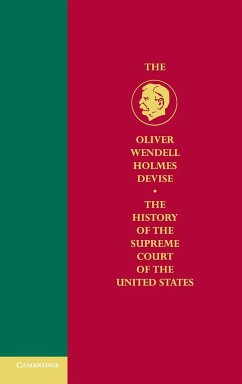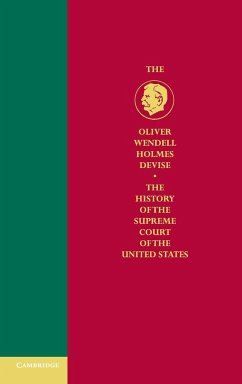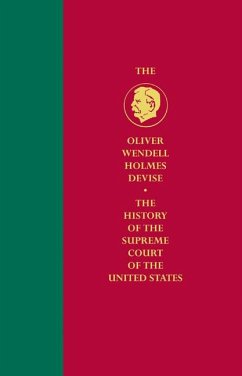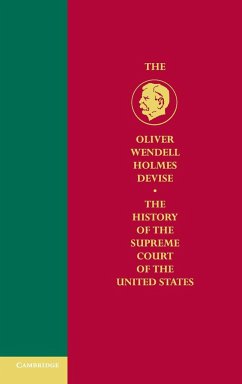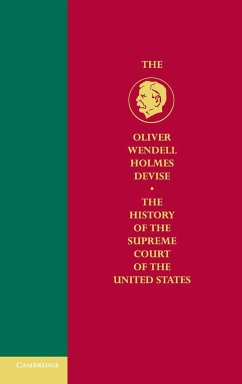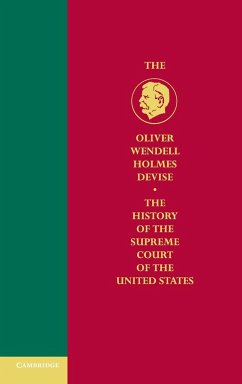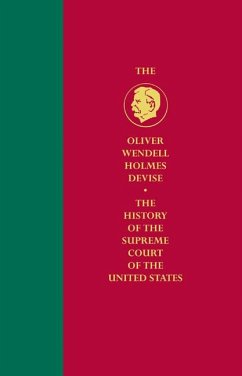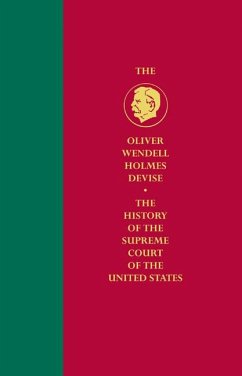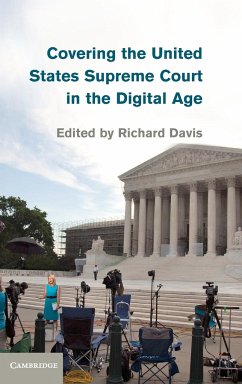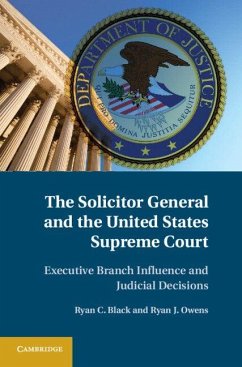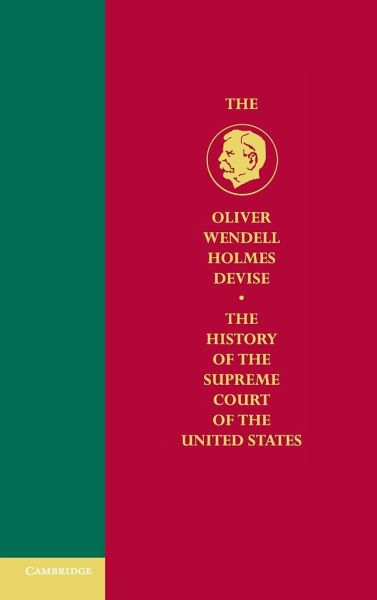
The History of the Supreme Court of the United States
Versandkostenfrei!
Versandfertig in 1-2 Wochen
94,99 €
inkl. MwSt.

PAYBACK Punkte
47 °P sammeln!
This book on the Supreme Court during the Chief Justiceship of Edward Douglass White (1910-21) covers an important aspect of American history during the Progressive Era. This was a time when the role of the Supreme Court was debated with a passion rarely exceeded in our history. In its constitutional, antitrust, regulatory, and race-relations decisions, the Supreme Court found itself at the heart of the most important economic and political questions of the day. This was a time when some of the most brilliant jurists in American history sat on the Court: Oliver Wendell Holmes, Jr.; Louis D. Br...
This book on the Supreme Court during the Chief Justiceship of Edward Douglass White (1910-21) covers an important aspect of American history during the Progressive Era. This was a time when the role of the Supreme Court was debated with a passion rarely exceeded in our history. In its constitutional, antitrust, regulatory, and race-relations decisions, the Supreme Court found itself at the heart of the most important economic and political questions of the day. This was a time when some of the most brilliant jurists in American history sat on the Court: Oliver Wendell Holmes, Jr.; Louis D. Brandeis; and Charles Evans Hughes, to name a few. This book sets the Supreme Court in the midst of the political, economic, and social turmoil of one of the most important periods of American history.





